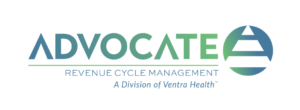On January 17th, the Centers for Medicare and Medicaid Services (CMS) published its much-anticipated final rule on how Medicare Advantage (MA) plans, Medicaid plans, and Affordable Care Act (ACA) plans sold on the federal exchange can use prior authorization. This final rule seeks to improve the prior authorization process but ultimately does not curtail how much MA plans can use prior authorization.
The final rule is largely consistent with the proposed policies. Prior authorization is one of the greatest sources of administrative burden for medical practices. While more can be done, this bill will certainly bring needed improvements to the prior authorization process.
Streamlining Prior Authorization
Under the final rule, impacted plans must utilize a standardized electronic process to accept prior authorization requests and issue decisions. These plans must also provide a response within seven calendar days for non-urgent requests and within 72 hours for urgent requests. Additionally, impacted health plans will be required to provide a specific reason for denied prior authorization decisions. These decisions do not need to be communicated via the standard electronic process. These policies take effect on January 1, 2026.
Beginning on January 1, 2027, health plans must begin using a new standardized Prior Authorization Application Programming Interface (API) that will communicate prior authorization decisions and provide the documentation requirements for the request. The final rule provides some additional flexibility from the proposed rule to allow prior authorizations facilitated via this API to serve as an alternative to the X12 278 prior authorization transaction standard.
New APIs for Communicating Prior Authorization and Health Information
In addition to the prior authorization improvements, CMS is finalizing the creation of three new APIs which must be implemented by January 1, 2027:
- A Patient Access API which will provide patients with information about prior authorizations for their medical care,
- A Payer-to-Payer API to allow health plans to exchange patient health information when a patient switches to a new health plan, and
- A Provider Access API which impacted payers must implement. This API will facilitate sharing of patient data with in-network providers with whom the patient has a treatment relationship. Impacted payers will be required to make the following data available via the Provider Access API: individual claims and encounter data (without provider remittances and enrollee cost-sharing information); data classes and data elements in the United States Core Data for Interoperability (USCDI); and specified prior authorization information (excluding those for drugs).
The final rule largely mirrors bipartisan legislation in Congress called the Improving Seniors Timely Access to Care Act. Congress might not feel there is a need to continue advancing this bill if the final rule is similar to the legislation. The final rule is also not expected to cause much controversy outside of Congress as it has support from both the payer and provider community.
The final rule’s prior authorization improvements do not apply to drugs. Expanding this policy to drugs could be an opportunity for legislative action on this issue.
ADVOCATE will share additional information with clients and friends as it becomes available on this and other Federal Health Policies.
Kirk Reinitz, President
